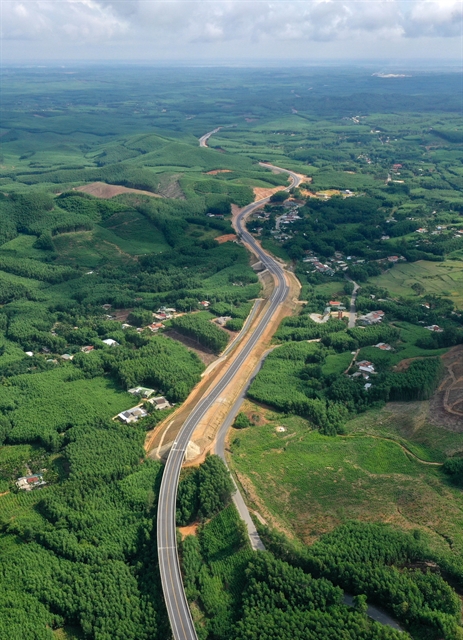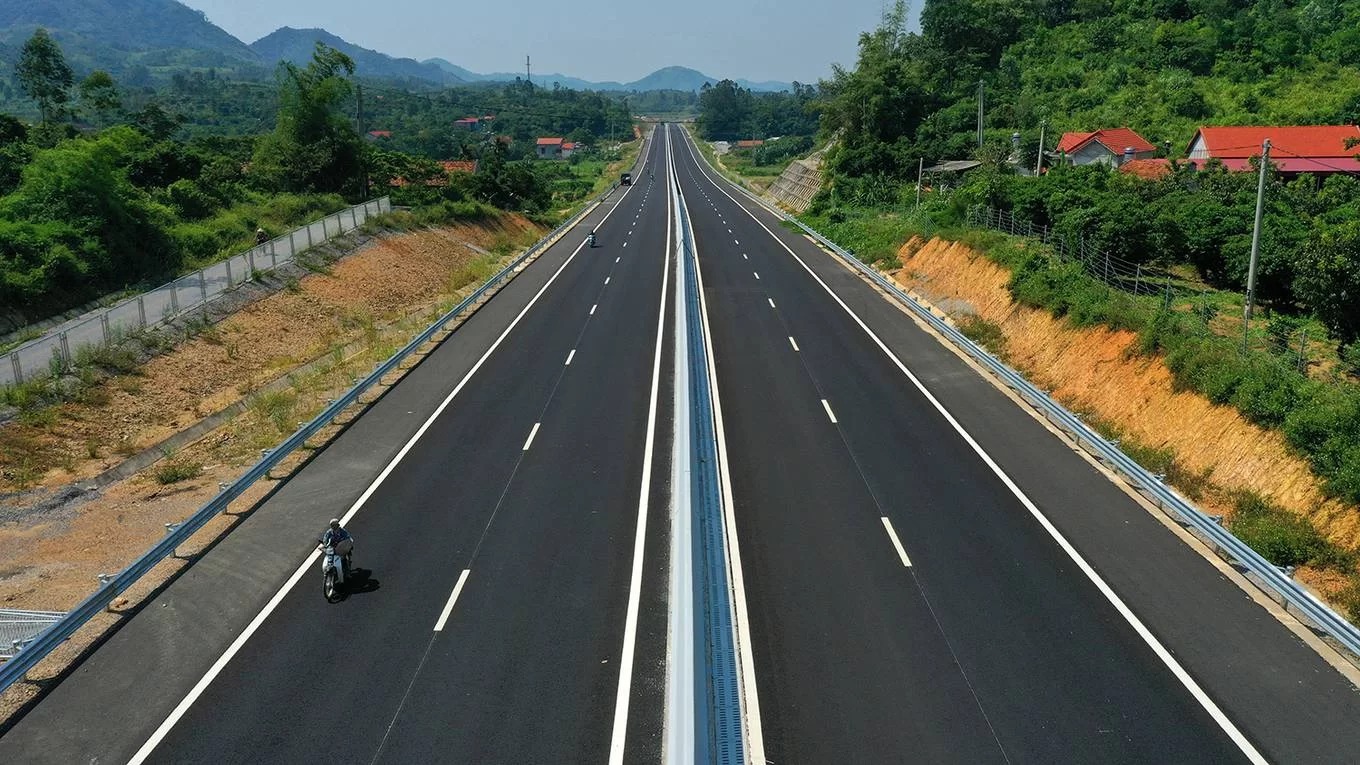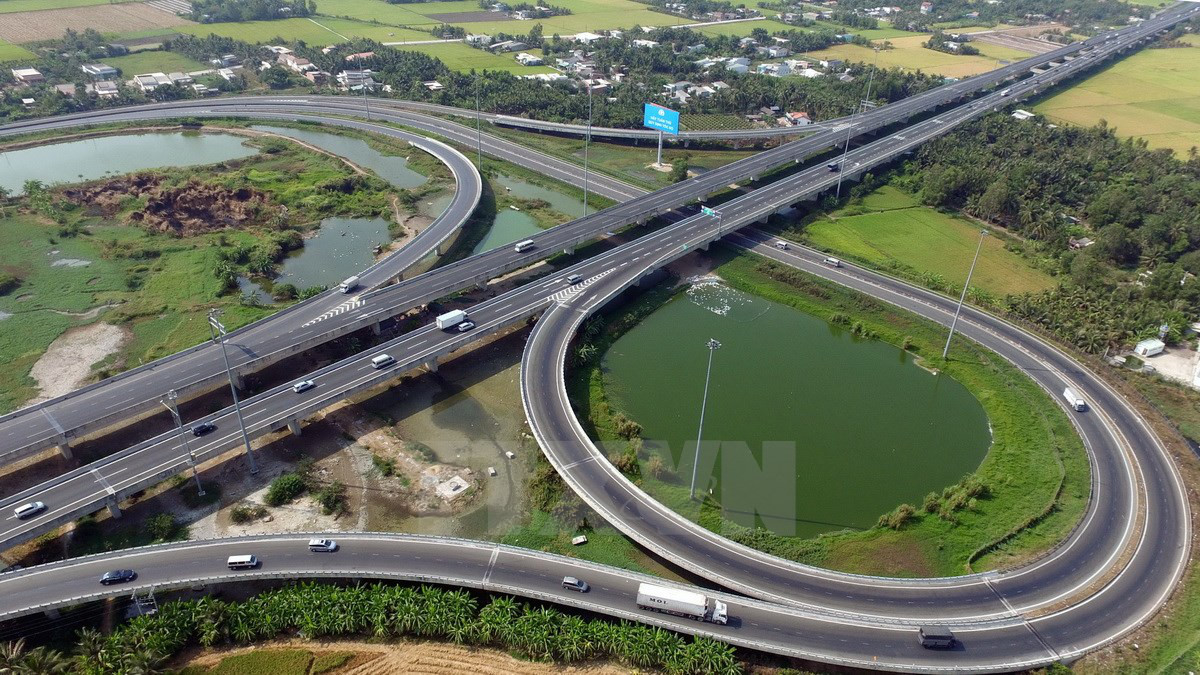
The ministry on September 24 decided to revoke the results of the international preliminary bidding process for eight sections of the eastern North-South Expressway project to be invested in a public-private partnership (PPP) model.
The decision was made on the consensus reached after consulting relevant agencies, the transport ministry said in an announcement sent to the media, adding that it would adjust pre-qualification bidding invitations to better suit open domestic bids for eight public-private-partnership (PPP) projects for the eastern section of the trans-Vietnam highway.
The ministry's project management boards had received 60 applications from both foreign and domestic firms including half being Chinese firms, as of the end of July, two months after the international preliminary bidding invitation, but just a few were eligible.
Four of the projects did not have investors that passed the prequalification requirements; two projects had only one; one project had two; and one project had three, according to the report made by the procuring entity and State agencies.
“The number of investors passing this stage was not high, leading to a lack of competition,” the ministry said.
As a result, the projects for the eastern section of the North-South Expressway are being re-examined while the ministry decided to cancel the result and adjust procedures to conduct a bidding session for domestic investors exclusively, allegedly to take into account global and regional disputes, defence issues and national security concerns, at the same time, raise local capability in infrastructure construction and empower domestic enterprises.
Earlier, the public worried that many Chinese companies would win the bidding as they dominated the applications. In reality, lots of Vietnamese projects carried out by Chinese contractors are facing sluggish pace and increased costs.

Domestic investors, according to the ministry, are fully capable of implementing construction sub-projects for the expressway project.
However, experts have pointed out that Vietnamese investors face major challenges because of financial limitations, which would require them to seek alliances (in the form of joint-ventures) to pass the prequalification stage.
Nguyen Danh Huy, General Director of the ministry's Public-Private Partnership (PPP) Investment Project Management Department, told Vietnam News Agency that the criteria for investors would remain unchanged and would be in line on the Law on Bidding.
Domestic investors have been asked to meet the minimum standards specified by the law and Government Decree No. 20, and to have equity capital that reaches 20 percent of the total costs. Or, the investor could have total capital that is equal to at least 50 percent of the total investment for the project under construction.
However, criteria related to capability and experience are being reviewed to make them less stringent than they were for foreign investors, he told VnExpress.
“Investors who satisfy all the requirements can attend the prequalification for the eastern section project for the North-South Expressway,” Huy said.
Regarding the criteria for having "at least 50 percent of the total investment for a project under construction,” Huy said investors could form a joint-venture with another investor.
“The ministry will meet with related ministries and agencies soon to discuss the issue. The plan is to hold another prequalification in October and results are expected to be released by 2020,” he added.
This is good news for many local enterprises in the field as they will have more opportunities to join the project, said Tran Van The, Vice Chairman of HCMC-based Deo Ca Group. However, he added, new criteria on investor ability and experience will be a matter of concern among local investors.
But it is unclear yet what the new criteria are in terms of capital and experience, and if the minimum amount required is high, most Vietnamese companies would not be able to join the bid, he said.
Vu Duc Nhan, deputy CEO of construction firm Phuong Thanh Tranconsin Jsc, said since many build-operate-transfer (BOT) projects have suffered losses in recent years, banks are reluctant to provide credit for them.
Many require investors to mortgage security worth 50-60 percent of the value of the investment, he added.

Tran Chung, chairman of the Vietnam Association of Road Systems Investors (VARSI), said that the State should consider revising the requirements to attract more local investors.
Under the current conditions, financial capacity is the most weighted factor, accounting for 60% of the overall score, whereas experience and methods of execution make up 30% and 10%, respectively. These requirements had kept many interested investors away previously as they had been disqualified, the chairman said.
Meanwhile, some experts pointed out that local investors are fully capable of executing the eight PPP sections, given their strong technical construction skills and abilities.
Dang Dai, Deputy Head of the Vietnam Association of Financial Investors (VARSI), said that domestic investors have the appropriate capacity and the construction techniques to carry out the project.
“Domestic investors only need to pay attention to the capital for eight eastern sections in which the State commits to ensure 30 percent of the total investment capital. Therefore, investors are responsible for 20 percent, so the rest can be mobilised from loans. Domestic investors definitely can fund the 20 percent. For technical issues, many of them have carried out expressway, bridge and tunnel projects, which have shown their capability,” Dai said.
Transport expert Nguyen Xuan Thuy said that domestic investors should be given priority for the key national projects like the North-South Expressway to ensure quality and reduce costs.
“Only a few international investors joined the bidding because they may have not met the criteria or they were concerned about issues related to procedures, capital, interest, and other matters. Also, the project might not be attractive enough for them,” said Thuy.
Since domestic investors would likely face financial challenges, he recommended that they cooperate with others.
“Large Vietnamese corporations such as Vingroup, Sun Group and T&T can work with road construction companies to have sufficient financial resources and at the same time meet standards related to experience," Thuy said.
Traffic expert Nguyen Hong Thai said that the construction capacity of local contractors is good, adding that they would meet the requirements of the North-South Expressway project. Thai pointed out that their qualifications have been demonstrated through major projects such as the Deo Ca and Hai Van pass tunnels and other bridges.
The North-South Expressway project, with 11 sections put forth for bidding now, is among the country’s top priorities for the 2017-2020 period as a rapidly growing economy is putting strain on the country’s outdated infrastructure.
Three sections are publicly funded and the rest are to be built under the PPP model. Work on the first of the state-funded sections began last week, while work on the eight PPP sections could begin next April, the ministry said.
The eastern section of the expressway will be 654km long and will be built during the 2017-2020 period with a total investment of 118.7 trillion VND (5.11 billion USD), including 55 trillion VND (2.36 billion USD) allocated from the State budget for site clearance and resettlement.
It will run through 13 provinces and cities from the northern province of Nam Dinh to the southern province of Vinh Long.
The highway is divided into 11 sub-projects, including eight under PPP investment form.


















